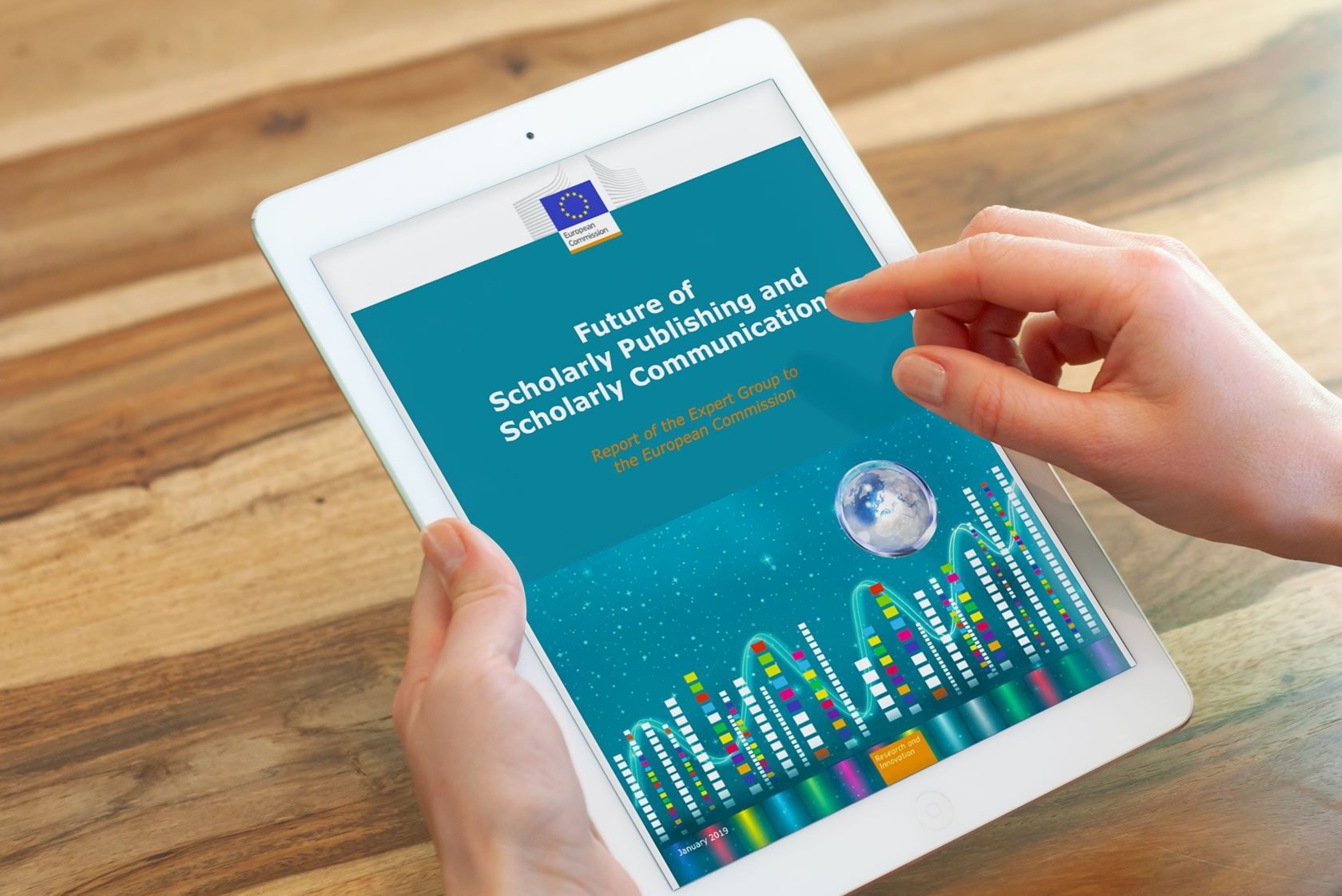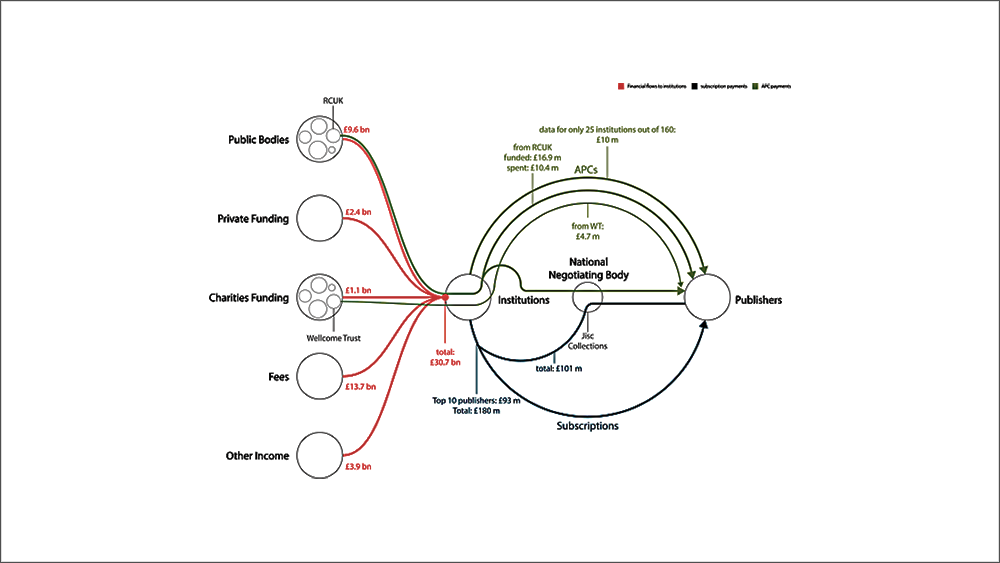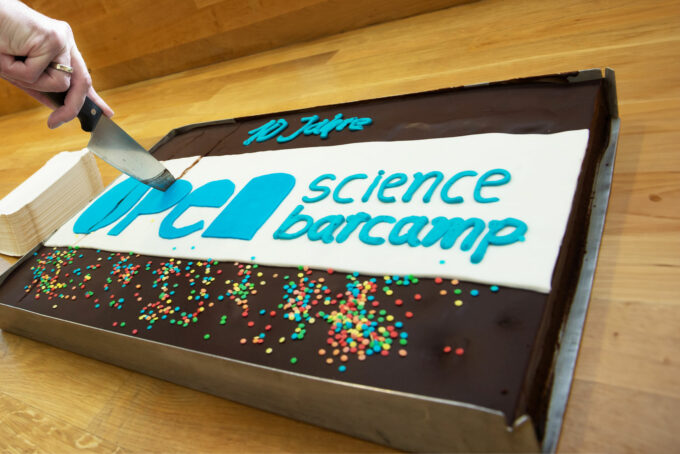
Future Report: Who can Transform Scholarly Publishing and Communication?
A new report on the future of scholarly publishing and scholarly communication addresses key principles and current shortcomings of the scholarly ecosystem. It also identifies key actors and gives recommendations for their future roles. The report emphasizes the still predominating influence of the Journal Impact Factor on research assessment, underlines the power of rewards and incentives to promote changes, and highlights the role of research funders as the most powerful change agents in the system.
by Birgit Fingerle and Dr Guido Scherp
The report “Future of scientific publishing and scientific communication – Report of the expert group to the European Commission” was published at the end of January 2019. It analyses past developments in and the state of scholarly communication and publishing nowadays with a focus on journals and articles.
The authors of the report propose ten principles which form a vision for scholarly communication for the next ten to 15 years. Furthermore, they use these ten principles to assess shortcomings of the current scholarly system. On this basis the authors wrote down recommendations to the key actors on how to overcome the found shortcomings in the scholarly communication system.
Key principles for scholarly communication
The report authors note that despite deep changes that have affected scholarly publishing, the process itself has remained quite stable, including four key functions that remain more or less unchanged since the 17th century: registration (attribution), certification (peer review), dissemination (distribution, access), preservation (scholarly memory and permanent archiving). In the last few decades, evaluation, especially in the form of the Journal Impact Factor (JIF), has also been a function strongly associated to scholarly publishing, but is now more and more contested. Thus, scholarly publishing (as formalised sub-set of scholarly communication) dominated by publishers still plays a major role in scholarly communication in general. Digital technologies provide completely new ways for scholarly communication in the sense of any form of exchange used by scholars and researchers to participate in the elaboration of knowledge, but its potential is currently heavily underused. New technologies and services allow researchers to not only take back control over parts of scholarly publishing (for instance registration and dissemination), but also to open up the research cycle and to apply a much broader range of scholarly communication activities.
In this context, the expert group proposed a set of key principles to characterize and advance scholarly communication which can also help to achieve an effective world brain:
- Maximizing accessibility
- Maximizing usability
- Supporting an expanding range of scholarly contributions
- Distributed, open infrastructure
- Equity, diversity and inclusivity
- Community building
- Promoting high-quality research and its integrity
- Facilitating the evaluation
- Promoting flexibility and innovations
- Cost Effectiveness
Current shortcomings of the scholarly communication system
As current shortcomings of the system of scholarly communication the report addresses:
- Open access is nowhere near reaching its objective of 100% of open publications. Furthermore, even for open access publications, usage is often limited due to unclear or missing access licenses to content.
- Technically viewed, the publishing system is still predominated by the traditional article, often in PDF format. Also, the interoperability of platforms remains limited because of the competition among publishers.
- The competition which arouses around rankings and the impact factor intensifies structural inequalities (like money, resources, prestige). This is remarkable because many studies found that such metrics are simplistic and may even deform the research process.
- Various forms of delays (peer review, embargoes) hinder community building in research. With regard to the process of certification (peer review) it is increasingly criticized for biases, opacity and other deficiencies.
- As commercial firms tend to treat new technologies as elements of competition, fragmentation and lock-in tactics are favored.
- The journal market itself lacks transparency in regard to production costs and price setting.
Based on these shortcomings recommendations for the key actors of the scholarly communication system are proposed.
Recommendations to researchers
Researchers are at the centre of the scholarly ecosystem. They have two different roles being information seekers on the one hand and being status seekers on the other. As status seekers they are strongly influenced by the reward system, the tools used to evaluate their work, and the competition this creates while hampering the collaboration needed to bring forward research. That is why researchers need to find ways to balance competition with cooperation and collaboration.
To overcome the current shortcomings of the system, researchers and research communities should focus on the merits and the impact of researchers’ work when participating in research assessment, instead of using (journal-based) metrics. They should take responsibility to make all research outputs openly available, discoverable, and reusable. Furthermore, they should increase awareness of, and the sense of responsibility for the implications of the behavior when performing roles as authors, reviewers, and members of decision-making groups. This also tackles the need to strive for a balanced and diverse representation (as regards gender, geography and career stage) for instance when seeking collaborations, organizing conferences, and convening committees. They should also contribute to an increased recognition and appreciation of peer-review work as core research tasks and support greater transparency. Communities of researchers, for instance learned societies, should develop policies and practices that contribute to the vision of scholarly communication. They should train their researchers on the importance and the responsibilities of communicating knowledge.
Recommendations to universities and research centres
Universities and research centres aim to foster research and the dissemination of knowledge. However, they are financed in various ways and their financing is related to assessments and rankings. This leads to many institutions aiming to secure better national and international rankings. Thus, universities and research centres collaborate and compete with each other at the same time. Having all their research output openly available, discoverable, and re-usable is to the advantage of these research institutions and they also possess the ability to change their internal reward system and their incentives which will be the most powerful area to foster change. So, universities and research institutions should develop policies and practices which make sure that all research contributions are made openly available, discoverable, and reusable according to agreed community standards. They should choose platforms which build upon free or open source software, supporting open data, and open standards where possible. They should also support the role of their libraries as access points to knowledge and important agents in regard to scholarly communication und publishing, as well as practice a research assessment which takes into account a wide range of scholarly contributions. Striving for a balanced and diverse representation is also one of their responsibilities when hiring, seeking collaborations, when assigning editors and peer-reviewers and so on. When negotiating with service-providers they should refuse non-disclosure clauses and include clauses enabling cost and price control, as well as compliance monitoring.
Recommendations to research funders and policy makers
While organizing the evaluation of grant submissions, research funders and policy makers are often involved in the evaluation of research institutions. These evaluations which are usually based on a measurable performance basis intensify competition. As they themselves set the quantified parameters of such evaluations research funders have a strong influence on all functions of scholarly communication, and therefore possess the power to promote change, being the most powerful agents of change at the present moment. To this end, research funders and policy makers should develop policies and funding mechanisms appropriate to make all research contributions funded by them available to everyone without any restrictions. They should ensure, too, that a wide range of research contributions and activities is considered in evaluating researchers. Their funding mechanisms should support the development and long-term maintenance of open, interconnected, and distributed scholarly publication infrastructures. In addition, they should reflect on the global effects of funding policies on diversity and inclusivity of research. Research funders and policy makers should also work with the other key actors of the scholarly system to make the total costs of open research be transparent.
Recommendations to publishers and other service providers
Commercial as well as not-for-profit publishers compete with one another and are presently the major service providers for all the key functions of scholarly communication to the other key actors of the scholarly system. Publishers have the possibility to and should work on new systems of evaluation, but will probably only be interested in doing so, if they receive some kind of economic value.
 Lawson, S., Gray, J. and Mauri, M., 2016. Opening the Black Box of Scholarly Communication Funding: A Public Data Infrastructure for Financial Flows in Academic Publishing. Open Library of Humanities, 2(1), p.e10., DOI
Lawson, S., Gray, J. and Mauri, M., 2016. Opening the Black Box of Scholarly Communication Funding: A Public Data Infrastructure for Financial Flows in Academic Publishing. Open Library of Humanities, 2(1), p.e10., DOI
Publishers and other service providers should make plans for the transition to comprehensive open access as soon as possible. They should support interoperable tools and services to facilitate access and reuse of scholarly outputs, but furthermore to promote innovative interventions of new entrants. As the other key actors they should also aim towards a balanced diversity among the persons who work with publications. They should foster transparency and accountability in peer review as well as with regard to the publishing charges, thereby enabling the development of a transparent and cost-effective marketplace.
Recommendations to practitioners, educators, their students, and other social groups
Actors with a professional or personal interest in research (for instance patients, civil servants, citizens involved in specific issue, and further more) are included in this, heterogeneous, group, the society at large. This group should have a voice in setting research priorities and can also participate in certain types of research projects (such as crowd-sourced collection of data).
Practitioners, educators, and other societal groups should organize and aim for free access to publicly funded research results and the right to reuse it. To this end they should reach out to funders, research institutions, and policy makers and work towards the development of new communication channels, new forms of co-creation, co-planning of research and funding in response to questions raised from the population at large.
Evaluation system as the most important element of the research system
The report concludes that the evaluation system is the most important structural element of the present research ecosystem. Working in a competitive atmosphere, it can be easily forgotten that research contributions have a public-good nature and working towards the principles and vision of scholarly communication and publishing easily falls short. That is one reason why digital technologies have contributed so little to fulfill its promises during the last twenty-five to thirty years and that journal articles still dominate the system. In this context, recommendations of DORA (San Francisco Declaration on Research Assessment) and the Leiden Manifesto should be implemented in research assessment.
Although it was not designed for this purpose, the JIF has a strong influence on researchers when deciding on what to read, on what topics to do research and where to publish their findings. It can also hinder the publication of for instance very innovative articles, because editors and peer reviewers are challenged with the quest for citations on the one hand and the concern for quality on the other. Thus, the JIF has an unhealthy power over the research system according to the report. But getting rid of its universal use would create quite a number of challenges for the different actors and their evaluation rituals.
From within the scholarly system only funding agencies stand somewhat beyond the reach of the JIF as they are not ranked themselves. As they also control a large amount of the funds for research, funding agencies can benefit from the greatest independence in the research system and should take a leadership role in improving the scholarly communication and publishing system. Only they have the power to rally (in the best case) all key actors of the scholarly communication ecosystem to work together on the future of open scholarly publishing and scholarly communication. Always with their key mission in mind: “To advance knowledge, and to enhance public welfare.”
Further Information
- Expert Group of the European Commission
- Future of scholarly publishing and scholarly communication Report of the Expert Group to the European Commission
- DORA (San Francisco Declaration on Research Assessment)
- Leiden Manifesto
View Comments

ORION Project: Opening Up Research in Life Sciences and Biomedicine
How do you trigger institutional, cultural and behavioural changes in research...



